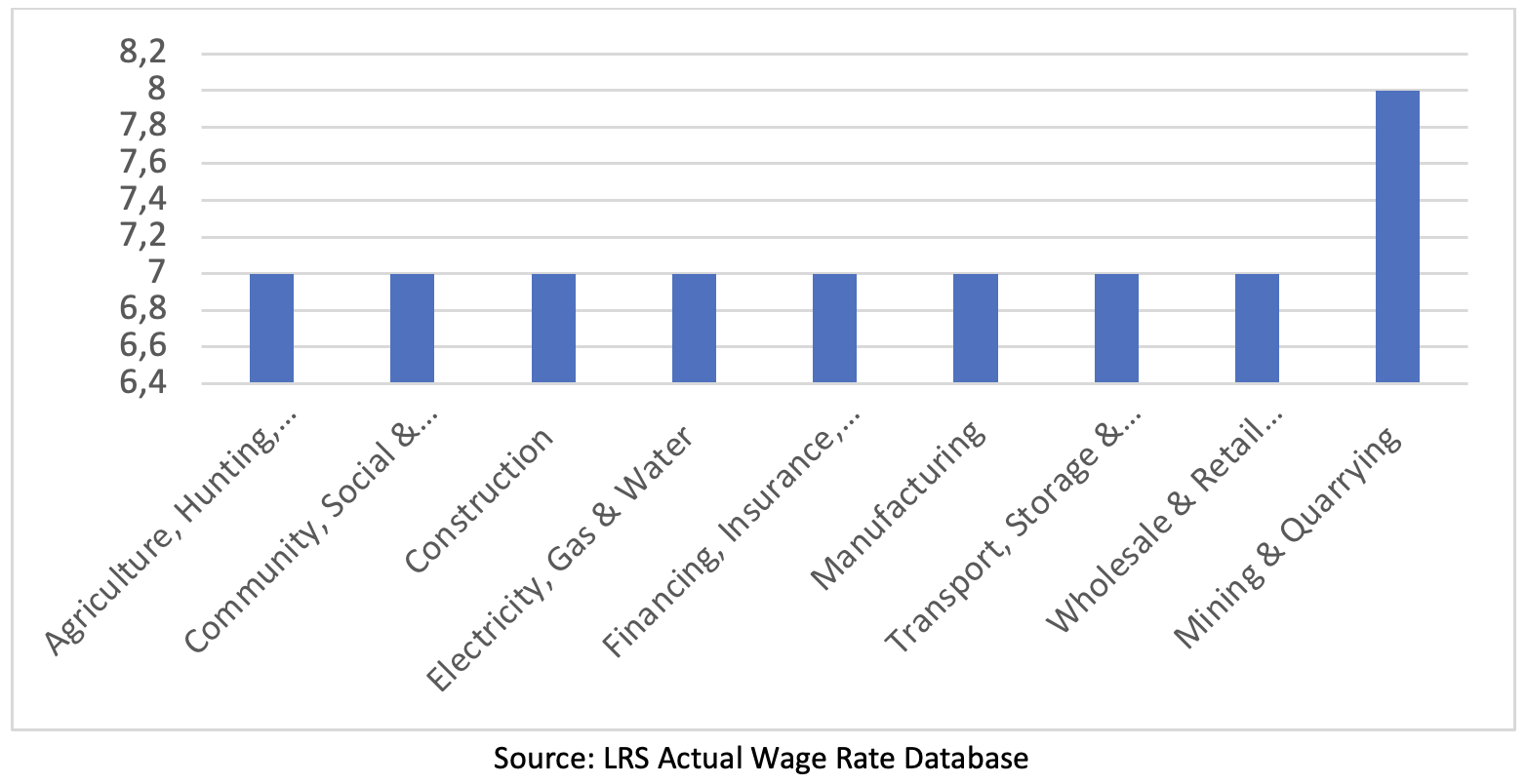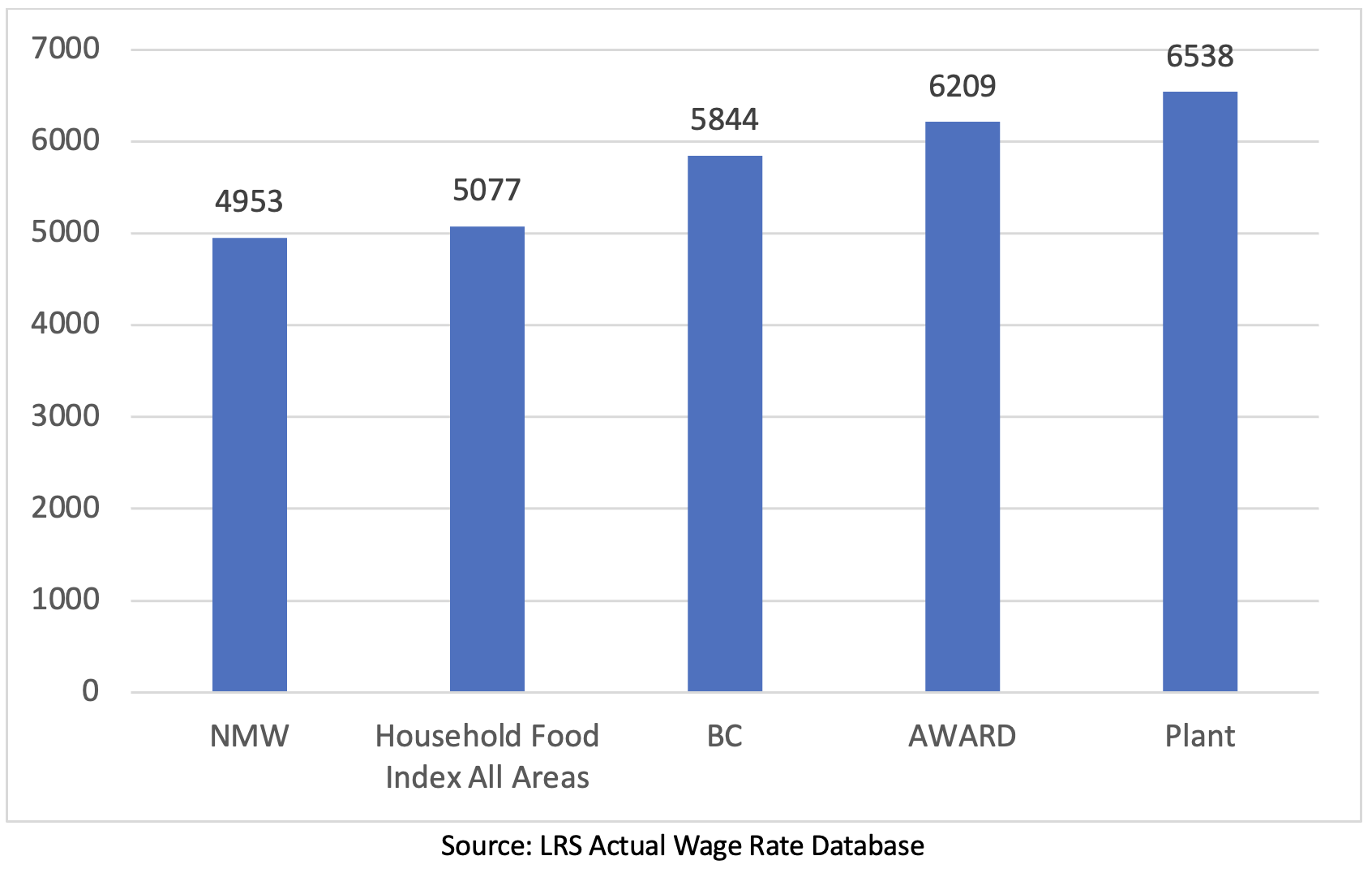The LRS Wage Bargaining Review provides wage trends across industries and unions to aid negotiators in preparing for bargaining.
Data for the latest issue comes from 576 collective agreements covering over two million workers who receive either the minimum entry-level wage or the lowest wage in the bargaining unit.
The average minimum wage across all sectors in 2023 was R7 774, while the median minimum wage was R6 209. The primary sectors showed remarkably consistent outcomes, with a nominal wage agreement of 7% across sectors, except mining, at 8%.
A nominal wage, or cash wage, is the amount of money an employer pays a worker. For example, if a worker earns R4 400 per month, this is the worker’s nominal wage.
Median (%) Wage Increase by all Industries 2023

Low-paid workers are finding it hard to cope with high food prices. The household food basket exceeded the national minimum wage by R124 in 2023. The median bargaining council minimum wage was R767 more than the household food basket, while the median plant-level agreement minimum wage exceeded it by R1 461. Union negotiators should monitor all indices instead of just the CPI to understand the impact on workers.
Median minimum wages compared to household food basket index 2023.

Wage bargaining in 2024
Basic bargaining benchmarks:
- Inflation (cost of living; inflation by spending and province; producer price index)
- Unemployment rate
- GDP and economic growth
- Household food basket
- Wage indicators
The wage demand benchmark should be 6% unless there is compelling evidence of a sustained downward trend in the current inflation rate of 5.3%. Wage outcomes look predictable.
The context of collective bargaining
Collective bargaining is highly stylised, rooted in tradition and often conflictual. There appears to be a crisis of confidence in centralised bargaining in particular, as evidenced by the collapse of some councils and the dissolution of forums over the years. The sentiment, whether real or perceived, risks the legitimacy and viability of collective bargaining systems. The underlying mistrust between management and unions further complicates bargaining, while predictable bargaining outcomes and whittling of bargaining agendas contribute to frustration among stakeholders.
We argue for a renewal of approaches for collective bargaining.
One possibility is to set a floor, such as an automatic inflation-linked increase negotiated through a predefined formula. This approach involves concentrating union efforts on agreed sectoral issues that can shape future outcomes. Each sector faces different challenges in the short to long term, and unions are best placed to identify the key issues and priorities, given their intimate knowledge of the sector they organise. The goal is to secure agreements that can influence the sector’s development.
Framing our issues
How we frame our issues matters because it can significantly influence the outcome. For example, is the core issue the loss of jobs or a broader issue such as trade policy? Is the challenge manufacturing competitiveness or the state of regional value chains, technology and production processes? We can avoid overlooking the underlying issues by framing them correctly.
Build intellectual and experiential knowledge
A knowledge base is essential. Our organisations have valuable knowledge that can help in creating sector-specific insights repositories. Knowledge should be institutionalised and popularised as part of the organisational memory rather than remain with individuals.
View the wage bargaining review report.
Essential resources:







